Download your PDF score!
By music teachers, for their students
| Title | Author | Set | Prices | ||
|---|---|---|---|---|---|
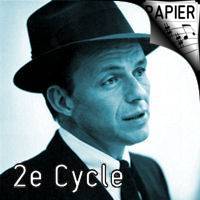
|
My Way (Choir) |
Claude François, Jacques Revaux |
Chœur mixte |
6.90€ |
|

|
My Way (Symphony Orchestra) |
Claude François, Jacques Revaux |
Orchestre Symphonique |
49.90€ |
|

|
My way (Brass Quintet) |
Claude François, Jacques Revaux |
Quintette de Cuivres |
14.90€ |
|

|
My Way (Saxophone Quartet) |
Claude François, Jacques Revaux |
Quatuor de Saxophones |
6.90€ |
|
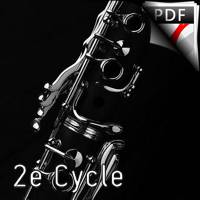
|
My Way (Clarinet Quartet) |
Claude François, Jacques Revaux |
Quatuor de Clarinettes |
7.90€ |
|
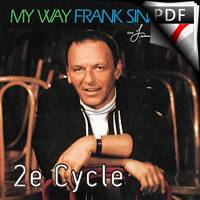
|
My way |
Claude François, Jacques Revaux |
Ensemble Variable |
19.90€ |
|

|
My way (Concert Band) |
Claude François, Jacques Revaux |
Orchestre d'Harmonie |
29.90€ |
|
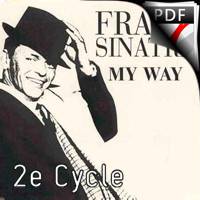
|
My Way (Voice Piano) |
Claude François, Jacques Revaux |
Piano voix |
4.99€ |
|
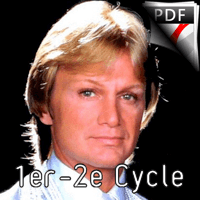
|
My Way (Brass Quartet) |
Claude François, Jacques Revaux |
Quatuor de Cuivres |
7.90€ |
"My Way" is a song popularized in 1969 by Frank Sinatra. Its lyrics were written by Paul Anka and set to the music of the French song "Comme d'habitude", co-written and co-composed (with Jacques Revaux), and performed in 1967 by Claude François. Anka's English lyrics have nothing to do with the original French song. The song has been a hit for a variety of performers including Sinatra, Elvis Presley, and Sid Vicious. Sinatra's version of "My Way" spent 75 weeks in the British Top 40, a record that still stands.
Paul Anka heard the original 1967 French pop song, Comme d'habitude, performed by Claude Francois, while on vacation in the south of France. He went to Paris to negotiate the rights to the song. In a 2007 interview, he said, "I thought it was a crappy record, but there was something in it."He acquired the adaptation, recording, and publishing rights for the mere nominal but formal consideration of one dollar, with the proviso that the composers of the tune retain their original share of the copyright on versions created or produced by Anka or his representatives. Some time later, Anka organizes a dinner in Florida with Frank Sinatra and "a couple of members of the Mob" during which Sinatra says "I'm mitting the business. I'm sick of it, I'm sick of it; I'm out of here."
Back in New York, Anka rewrote the original French song for Sinatra, subtly altering the melodic structure and lyrics:
"At one o'clock in the morning, I sat down in front of an old IBM electric typewriter and said, 'If Frank wrote this, what would he say? And I began, metaphorically, 'And now the end is near. I read a lot of periodicals and noticed that everything was "my this" and "my that." We were part of the "I generation" and Frank became the man who embodied that. I used words that I would never have used, "I ate it and spit it out. But that's how he talked. I was in the steam rooms with the Rat Pack guys - they liked to talk like mobsters, even though they would have been afraid of their own shadows."
Anka finished the song at 5 a.m. "I called Frank in Nevada - he was at Caesar's Palace - and he said, 'I've got something really special for you.'"Anka stated: "When my record company got wind of this, they were very angry that I didn't keep it to myself. I said, 'I can write it, but I'm not the one singing it. It was for Frank, nobody else. "Despite this, Anka recorded the song in 1969 (very shortly after the Sinatra recording was released). Anka recorded it four more times: in 1996 (as a duet with Gabriel Byrne, in the movie Mad Dog Time), in 1998 in Spanish with "A Mi Manera" (duet with Julio Iglesias), in 2007 (duet with Jon Bon Jovi) and in 2013 (duet with Garou).
A few hours before going to celebrate the New Year at the SANDS Casino, Frank Sinatra recorded his version of the song on December 30, 1968, which was released in early 1969. It reached #27 on the Billboard Hot 100 chart and #2 on the Easy Listening chart in the United States. In the UK, the single reached a still unmatched record, becoming the record with the most weeks in the Top 40, spending 75 weeks from April 1969 to September 1971. It spent an additional 49 weeks in the Top 75.
